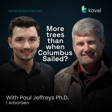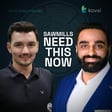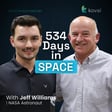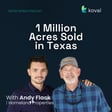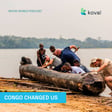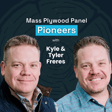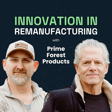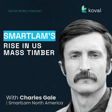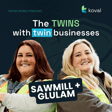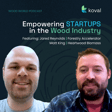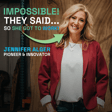
One Sawmill Changed EVERYTHING for Countless People in Congo | Wood World with Glen Chapman
🎥 About This Episode: Explore the significant impact of Glen Chapman's initiatives in remote Congolese villages. With only a portable lumber mill, Glen was instrumental in addressing critical lumber shortages that plagued these areas after years of conflict and economic challenges. His approach not only supplied needed wood but also fostered significant economic and educational growth in the community.
👤 Meet Glen Chapman: Glen Chapman has spent over five decades at the forefront of sustainable development and economic improvement in the Congo in Africa. By introducing a portable lumber mill, Glen provided essential materials like wood and spurred a wave of economic activities, encompassing everything from carpentry to boat building, thereby revitalizing local communities.
🌲 Deep Dive into the Heart of Congo: This episode explores Glen Chapman’s pivotal role in mitigating poverty and resource scarcity in the Congo. We discuss how the introduction of the Wood-Mizer sawmill marked a turning point, significantly enhancing local education, housing, and infrastructure.
--- 🌟 About Koval Digital We specialize in delivering high return and quality solutions to support the branding, business development, hiring, and training needs of people and businesses in the wood industry. 🌲 Improving the lives of people in the wood industry globally 🌎
🔗 Connect with Us - LinkedIn: https://www.linkedin.com/company/kovaldigital/
🚀 Ready to Elevate Your Digital Presence? Schedule a call with our team and let’s make things happen!
Visit https://kovaldigital.com to get started.
#woodworld #timber #woodindustry #sawmillbusiness #businessmanagement #timberindustry #masstimber #hardwoods
